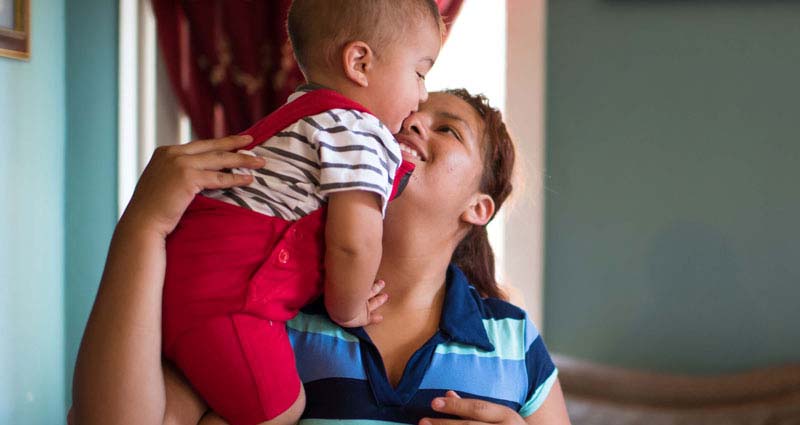Progress in Rochester
When a first-time, low-income mother encounters the Nurse-Family Partnership, she benefits from parent education and support through home visits in the first year of her child’s life. But what then? With a low-wage job, uncertain childcare, trouble making the rent, maybe even pressures to move, a mother could lose her way in what is frequently a complicated array of intersecting and parallel services. What about checkups, health insurance, preparation for preschool? How can she know what’s out there?
If she’s in Rochester, New York, she’s in luck. With a 50.5 percent child poverty rate, Rochester is brimming with robust organizations committed to relieving the impact of poverty. The Rochester-Monroe Anti-Poverty Initiative recently secured $4.75 million in funds from the state for this purpose, and The Children’s Agenda, which staffs one of the Initiative’s member organizations, received support from the McGowan Fund. The Agenda’s focus: developing policies and methods that will knit existing programs together more tightly. The Agenda calls this model “All Kids Thrive” (AKT).
Poverty affects everything about being a kid—emotional development, memory capacity, and stress tolerance, plus all the obvious educational markers, like reading. Impoverished children are at higher risk for low reading and math scores, severe chronic diseases, and obesity compared to children who grow up in higher income households. Tragically, the effects can last a lifetime: Impoverished children are more likely to see low occupational status and low wages, poor health, and deficits in working memory when they become adults than their wealthier counterparts.

Even though health and learning are inextricably linked in early childhood—think the distraction of hunger and the activity-limiting impact of asthma—in Rochester, as in most cities, children’s health and education agencies are not as closely linked as they could be. Among the AKT strategies: a navigation system offering custom coaching, aimed at helping parents find what their kids need, and an integrated system that will allow healthcare, education, and human services organizations to share crucial data. With such integration, parents will find that there’s “no wrong door for entry” to getting services, says The Children’s Agenda Chief Executive Officer Larry Marx. Full-day, year–round, high-quality pre-K for three- and four-year-olds and expanded summer learning programs are also on the docket. Studies indicate that such programs improve chances a child will graduate high school and even college.
Marx and Early Childhood Policy Director Peter Nebozny see AKT as a model for the nation—a logical next step in boosting achievement and well-being among all of America’s children.
“Every challenged city could do this,” Nebozny says.
This 2018 grant: $40,000

